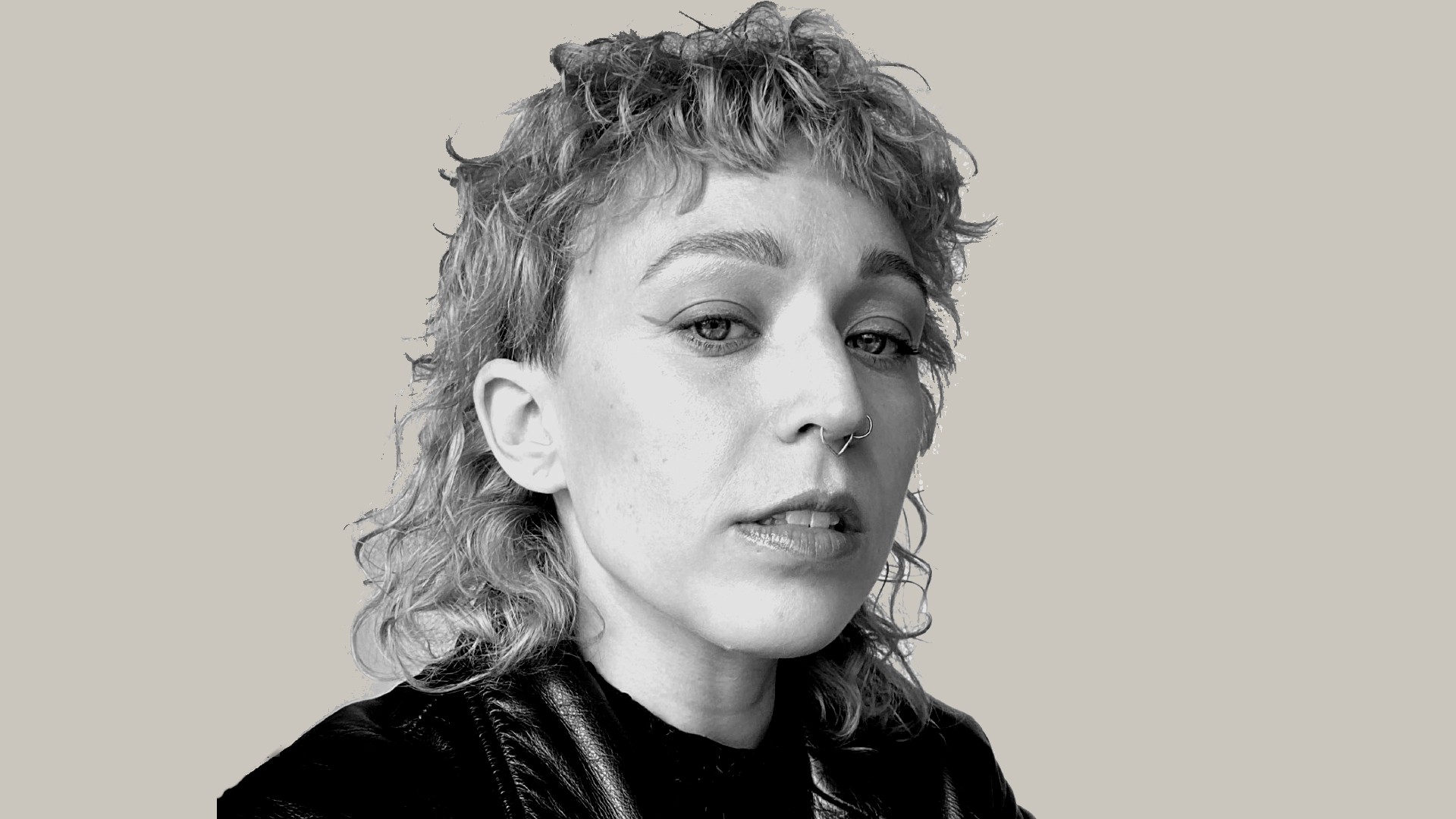Mass Effect N7 Day: Jennifer Hale and Mark Meer on Commander Shepard's enduring legacy
Voice acting royalty Jennifer Hale and Mark Meer reflect on representation, Canada, and the magic of the Mass Effect trilogy
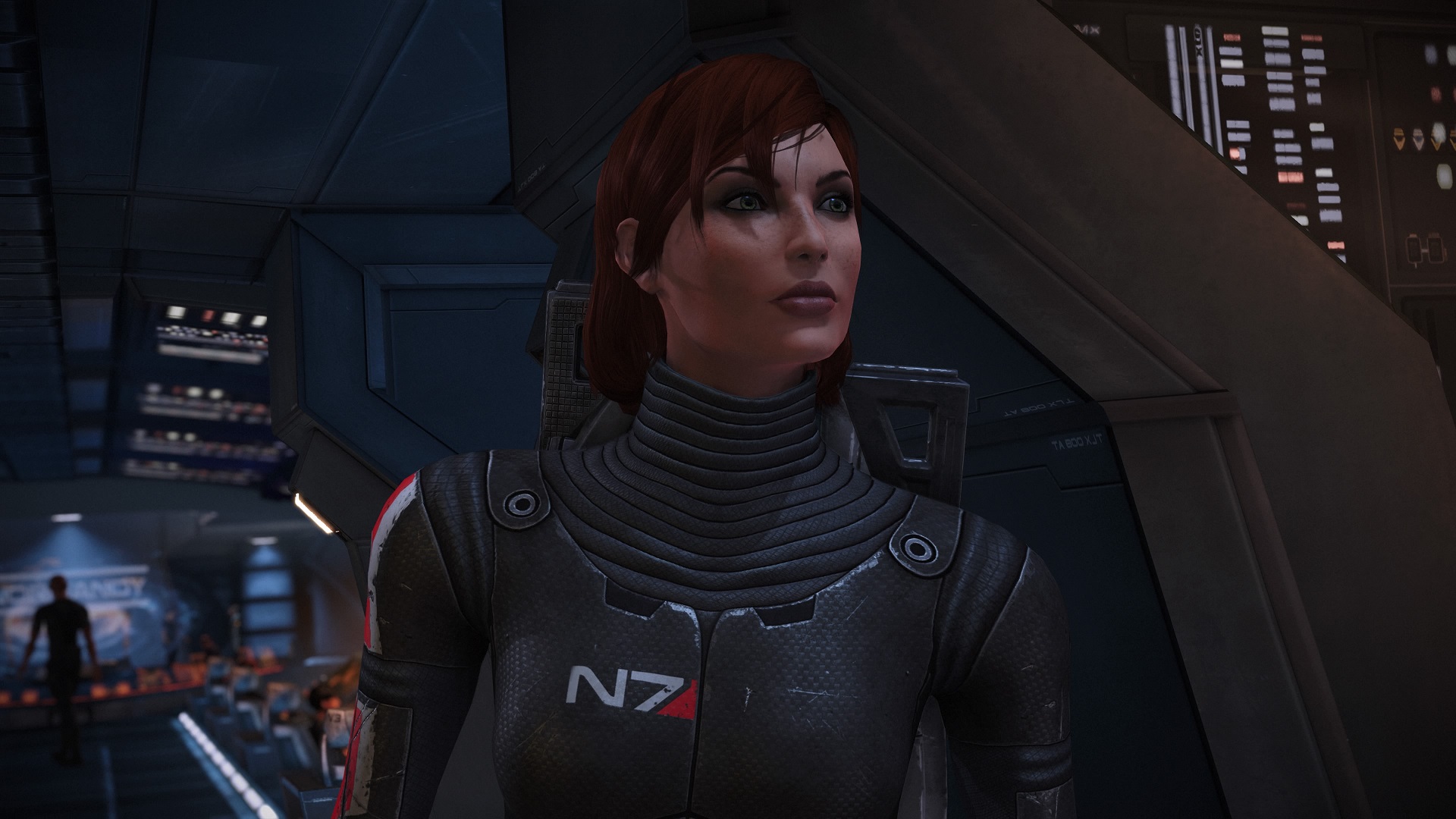
Jennifer Hale and Mark Meer love Mass Effect as much as we do. The iconic voice actors, who both play Commander Shepard in the influential and beloved BioWare trilogy, are just as invested in the adventures of the Normandy and its crew today as they were 14 years ago when the original Mass Effect launched.
That's why, when I sit down to chat with them as part of a celebration of Mass Effect N7 Day, my nerves immediately dissipate. Their excitement about the revamped Mass Effect Legendary Edition and the series' legacy is palpable – it almost feels like a powerful biotic force is emanating from my monitor. The fact that they are as gracious and kind as a hero should be only adds to their appeal – they both are, in many ways, the embodiment of Commander Shepard.
Returning to Mass Effect

The mere announcement of the remastered trilogy brought Hale to tears, in part because of her love for the series, but also because FemShep finally got proper representation across all three games. Until Mass Effect 3, there was no default FemShep design, so BioWare went back and added it into the first two games for the Legendary Edition. "I've been really public about how it hit me, you know, that feeling of actual representation was mind-blowing and moving," Hale says earnestly.
"I live my life as an open-minded, inclusive, advocate human being, and I thought I understood representation until I actually experienced it. So that was an extraordinary experience. And weirdly enough, that deep, visceral experience of representation has shut me up a lot because I sit back and I respect other people's experiences in a way that I wish I had done all along." She pauses, almost as if she's just reminded herself, and says, "Actually, I'm curious about Mark's experience, because you've played the games..."
Meer perks up. "I've not actually played the Legendary Edition yet," he admits. "But I've watched a lot of people play it and I've been on Twitch streams and friends of mine have been doing their first playthroughs of it, so I've got to experience that through them." I ask if he's noticed an uptick in attention around the release of the Legendary Edition. His response: "It's not like it ever went away."
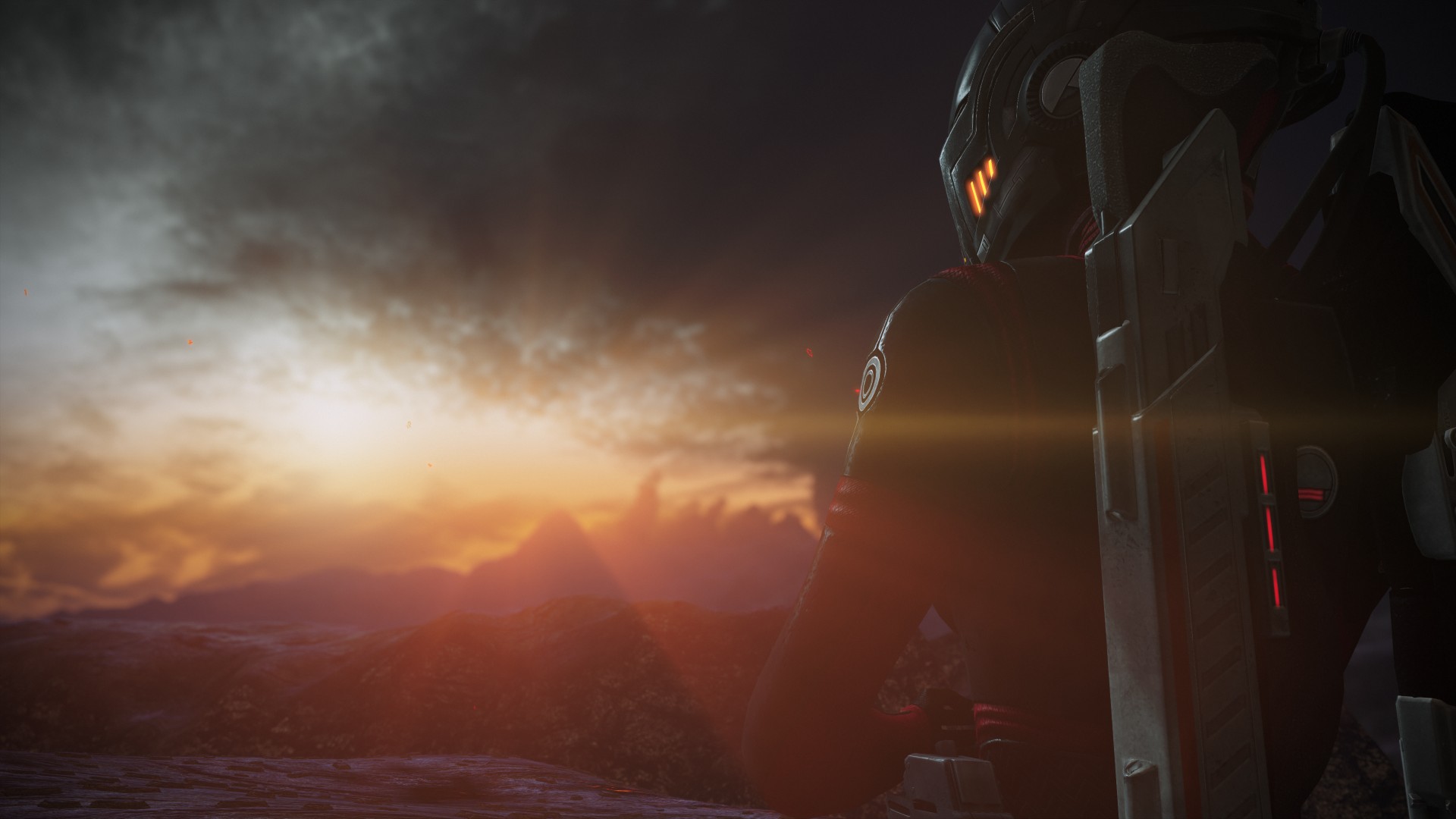
"Ive been really public about how it hit me, you know, that feeling of actual representation was mind-blowing and moving"
Jennifer Hale
"Mass Effect fans kept this alive, there's been constant feedback from Mass Effect fans and people sending me fan art or getting tagged in things," Meer continues, "but I did notice that sort of got kicked up to another level around May of this year… but it's not like there was just nothing and now suddenly there's an abundance. It's just that there was a lot and now there's even more." Hale agrees: "This fandom doesn't fade," she says, shaking her head in joyous disbelief. "It's evergreen. It's crazy. I'm blown away. I think it has such staying power and it is just connected to people."
I ask when they first realized the power the Mass Effect had, and they both reference conventions. "Someone walked by me at a convention in immaculate Commander Shepard armor that lit up at the back and just looked like they could walk into a movie set," Meer says. Hale's experience is similar: "It was Comic Con San Diego and we were polling the fans about what FemShep should like, because she was going to be included on the box for Mass Effect 3. We had our own little stage off to the side and fans were there and I thought, 'Oh god, okay, I guess this is a thing.'"
Sign up to the GamesRadar+ Newsletter
Weekly digests, tales from the communities you love, and more
"I've worked on games where huge amounts of money were spent flying us to other cities for performance capture and all kinds of stuff and then POOF, game gone," says Hale, who points out that she doesn't pay attention to how a game is doing because her eyes are solely on living her life as a character – but that moment struck her all the same. "I was like 'oh my god, wow!' They said there's gonna be a trilogy and this one actually was."
Representing Us
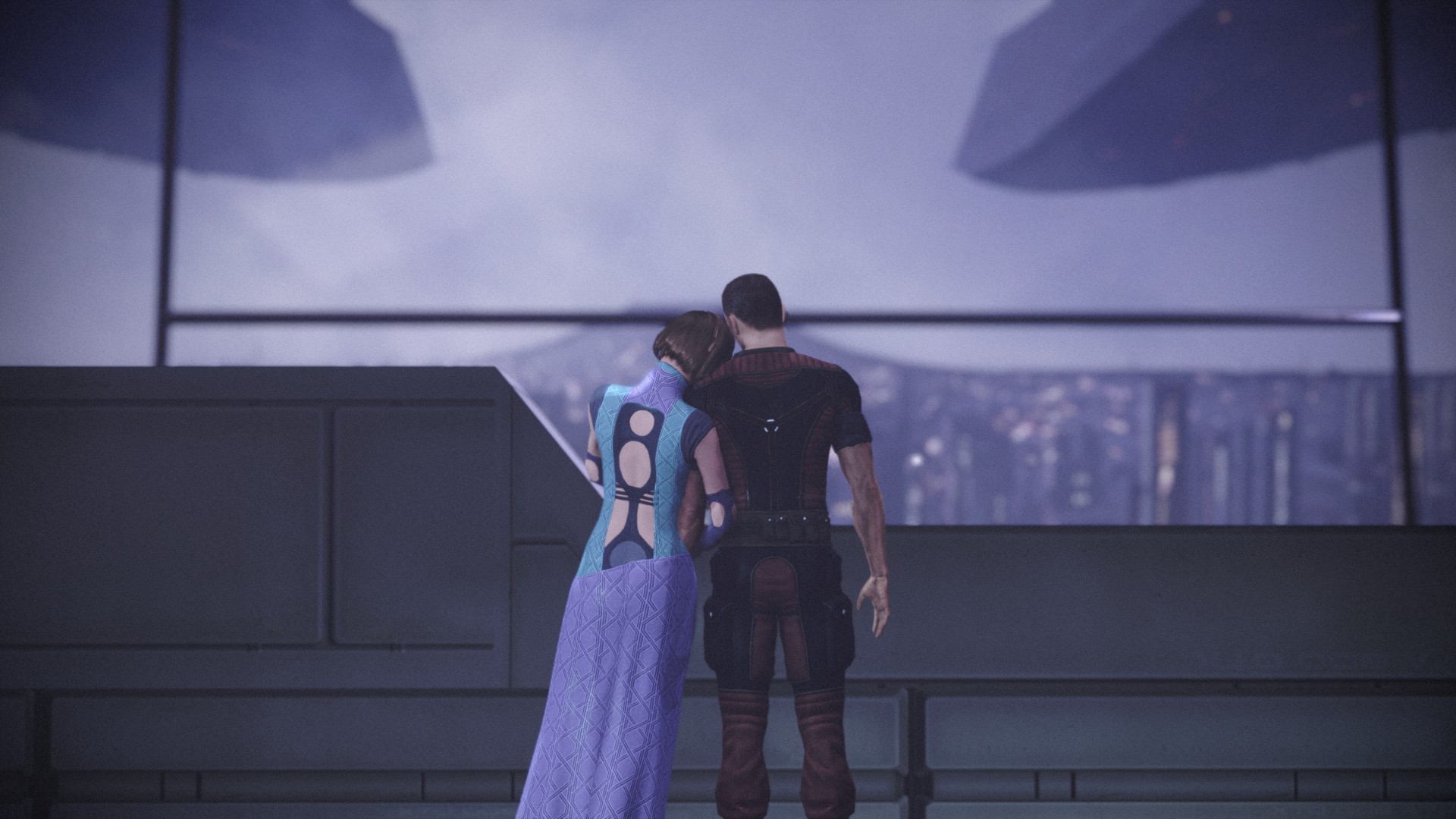
Popular culture has shifted quite a bit since Mass Effect released in 2007. And while there are still issues related to representation in the broader video game industry, a lot has changed in 14 years. In fact, a major shift took place between the original game and its sequel. You might not remember this, but Mass Effect's debut was soundtracked by the squawks of Fox News pundits who were irate that there were sex scenes showing "full digital nudity". And the fact that mono-gendered asari were femme-presenting certainly didn't help calm the naysayers down – but BioWare forged ahead, adding same-sex romance options in Mass Effect 2 and 3.
"When [Mass Effect 1] first came out, that there were same-sex romances, everybody was like 'Wait, what?' And now the culture has shifted so quickly and so beautifully that people are like, 'well, yeah'," says Hale. I tell them that Mass Effect was one of the games that helped me come out as a queer woman, as it didn't feel like an option in my youth, and they both beam with a delight that feels genuine
"I think BioWare is often at the forefront and I think we'll continue to see that," Meer says, referencing the upcoming Mass Effect 5. "We're recording this just a couple of days after National Coming Out Day in the States, and I don't think that holiday existed – or at least it certainly wasn't celebrated to the level that it is now. So when we first recorded Mass Effect we were blazing a trail to a certain extent – or rather, BioWare was blazing a trail and we got to be part of that process. And it was a real honor to get to take part in that."
Mass Effect covers a lot of ground across the trilogy, putting players in positions where they must carefully weigh decisions and potentially question their morality – or, in my case, their sexuality. I ask what the duo thinks the ultimate message of the Mass Effect trilogy is and Hale is quick to answer.
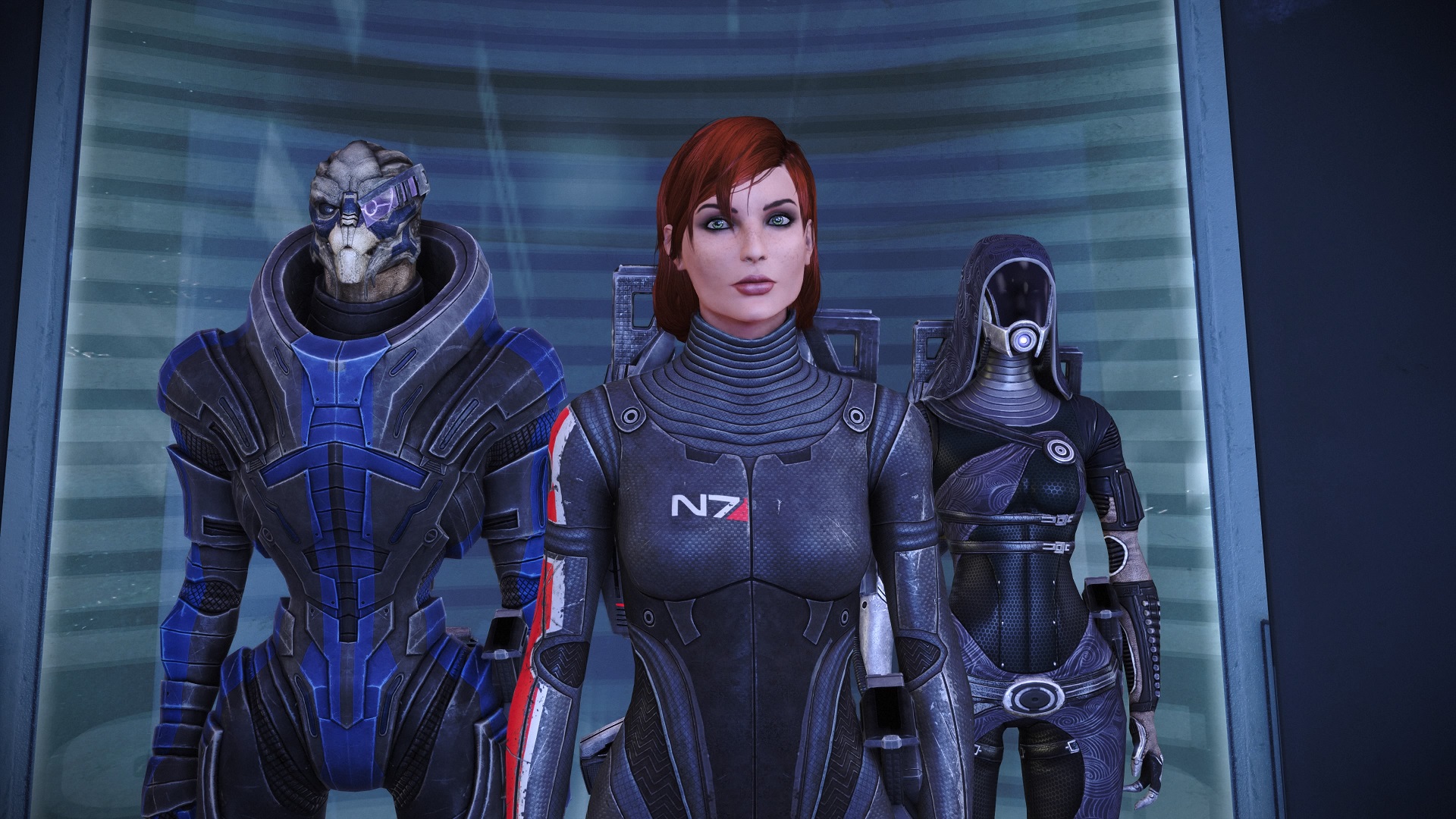
"I think BioWare is often at the forefront and I think we'll continue to see that."
Mark Meer
"One of the things that stands out to me so much about this game was this message that kind of always hangs in my head. I see it through the narrative, through all the choices, and for every single character: you matter, and what you do matters," she says. "We've heard that our whole life: 'There's only one of you; don't be anyone else.' But the truth is, there really, actually, literally is only one of you. Please be here. Please be you. 'Cuz if you don't, it never happened. And we need it, ya know?"
This feels like something a Paragon FemShep would say before the Suicide Mission, and I almost cry on the spot. Ever the consummate professional, however, I continue on, asking them about the Citadel DLC – in which Shepard and crew throw an absolute rager – and how it felt like an especially personal love letter to fans. "It gave you the chance to see NPCs interact that had never interacted before, you got to have Wrex and Grunt in the same room and, oh, Zaeed is here as well, and you get to see the conversation between them," says Meer. "And beyond that, the party was all about, let's face it, fan service. There was lots of fan service in the Citadel – lots of in-jokes, and it was just so celebratory."
"To me, that goes back to the nature of this company making this, the heart of BioWare," continues Hale. "It's just so beautiful. It's so responsive, so open-minded, open-hearted, inclusive, and connected. It's about the game and the material and it's not about anything else – it's incredible."
Canada, the birthplace of legends
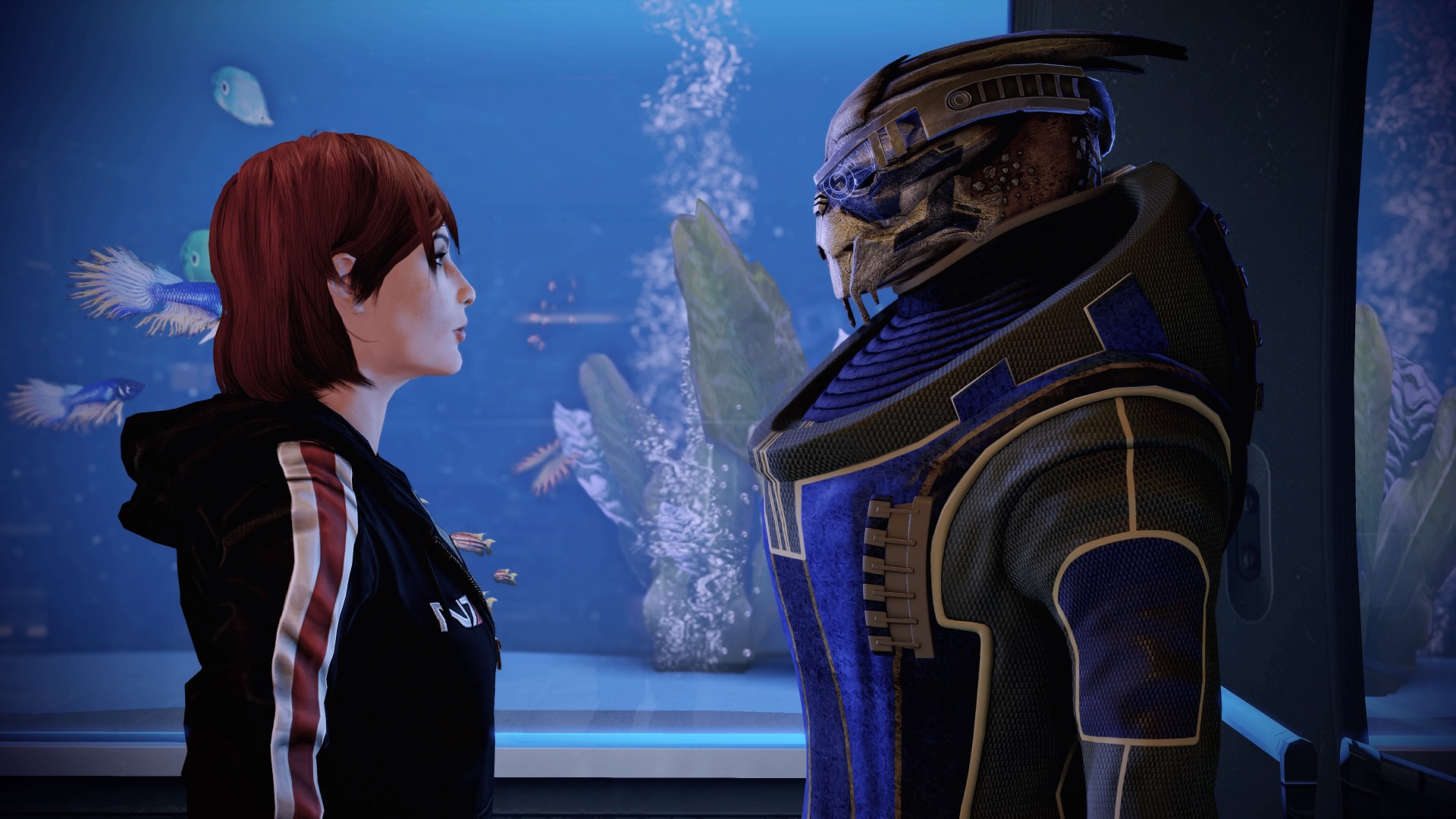
Both Hale and Meer agree: BioWare wasn't trying to make a blockbuster game with Mass Effect, they just wanted to make something cool. And part of that coolness stems, believe it or not, from being Canadian. "I'm actually going to take a step out and say that the fact that this is a Canadian team has something to do with it, because I've lived in both countries… and this is no shade to anybody, but there's an element that I find in our northern allies where status doesn't matter," says Hale.
"Nobody cares who's a star. Nobody cares what your last thing was; you don't have that same pressure you might get in some of the larger markets in the US. You just need to be good at what you do, decent to be around, and then just go have a beer. I'm in love with the humanity here, the open-heartedness and the practicality... I don't know, Mark, I'm speaking about a place you know a lot more about than me... There's just a beautiful straightforwardness to the team. They weren't seeking to be stars, they were seeking to do something really cool that they loved. What do you think?"
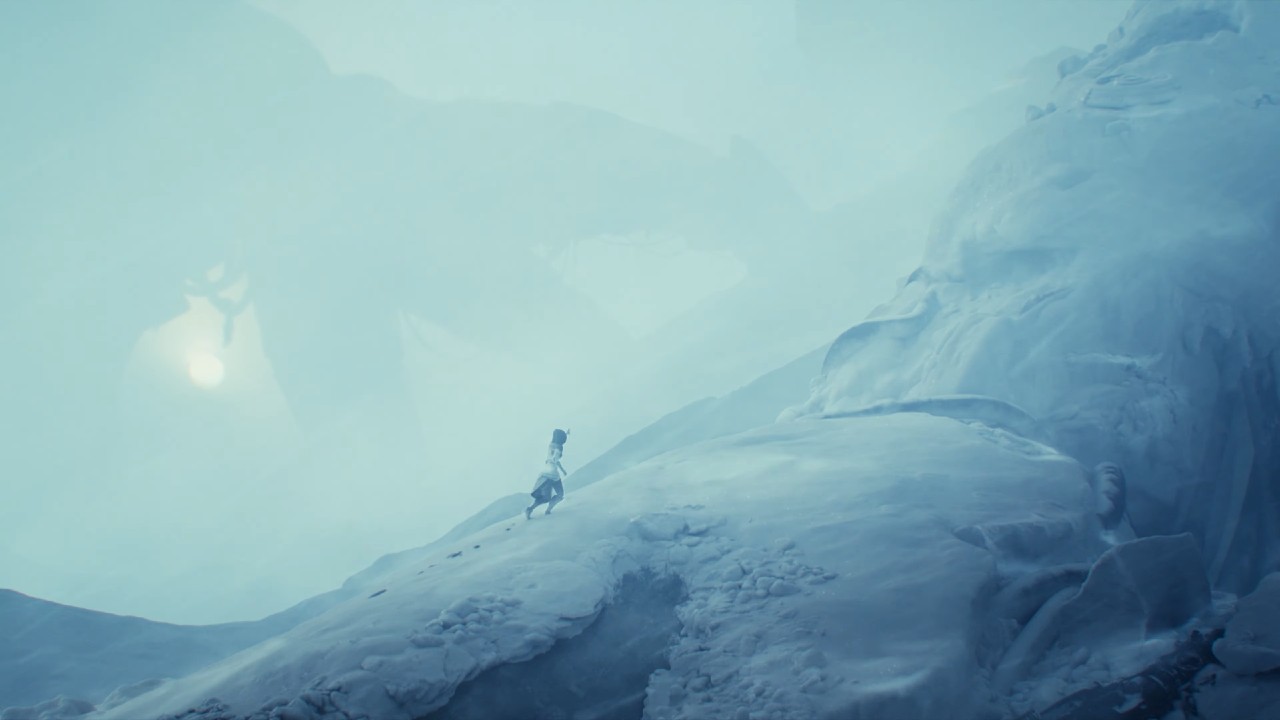
The next Mass Effect game is definitely a direct sequel to Mass Effect 3, here's why
"I will sing 'O Canada' in its entirety," native Canadian Meer jokes. "I'll actually go even further. The fact that it's not only Canadian but Edmonton – the city that I live in, where BioWare is based and where BioWare started – that kind of feel is very Edmontonian, I think. We don't feel the pressure to be the coolest, because we're often the coldest."
Hale and Meer make it abundantly clear that the team behind Mass Effect adores the Mass Effect trilogy just as much as its fanbase – and that adoration bleeds through into their work. That adoration is why Mass Effect fans can recall certain moments and specific lines of the trilogy with a tear in their eye. It's why some people, like myself, felt comfortable coming out after playing the series. It's why Mass Effect endures. Happy N7 day.
Check out our Mass Effect Legendary Edition review.
Alyssa Mercante is an editor and features writer at GamesRadar based out of Brooklyn, NY. Prior to entering the industry, she got her Masters's degree in Modern and Contemporary Literature at Newcastle University with a dissertation focusing on contemporary indie games. She spends most of her time playing competitive shooters and in-depth RPGs and was recently on a PAX Panel about the best bars in video games. In her spare time Alyssa rescues cats, practices her Italian, and plays soccer.
